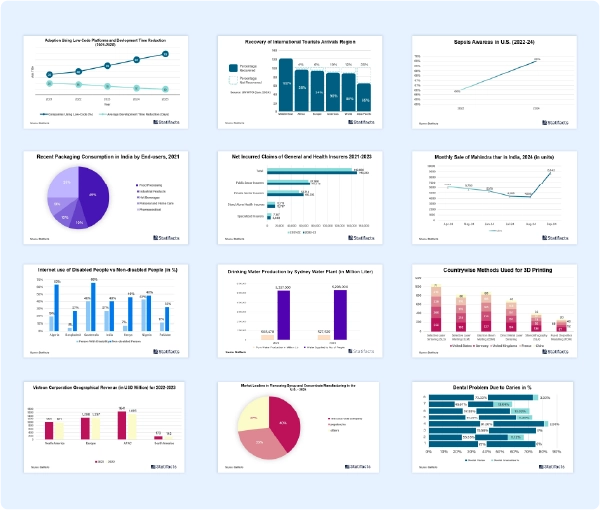The U.S. nutraceuticals market size is calculated at USD 169.52 billion in 2024 and is predicted to reach around USD 281.44 billion by 2034, expanding at a CAGR of 5.2% from 2025 to 2034.
U.S. Nutraceuticals Market Report Highlights
- By type, the dietary supplements segment accounted for a considerable share of the market in 2024.
- By type, the functional beverages segment is predicted to witness significant growth in the market over the forecast period.
- By form, the tablets & soft gels segment held a dominant presence in the market in 2024.
- By form, the capsule segment is projected to experience the highest growth rate in the market between 2025 and 2034.
- By sales channel, the offline segment registered its dominance over the market in 2024.
- By sales channel, the online segment is anticipated to grow with the highest CAGR in the market during the studied years.
The U.S. nutraceuticals industry is growing at a fast pace, led by growing consumer interest in preventive healthcare and a trend toward natural and functional foods. Nutraceuticals, including dietary supplements, functional foods, and beverages, provide health benefits over and above basic nutrition, responding to the increasing demand for wellness-focused lifestyles. The growing incidence of chronic diseases, increasing aging population, and demand for plant-based and organic ingredients are driving market growth.
One of the major impetuses for the U.S. nutraceuticals industry is increasing consumer interest in preventive healthcare options. Increasing healthcare expenses and growing recognition of nutrition's importance to overall well-being have led consumers to take up the use of nutraceuticals as part of their daily lives. The transition from reactive to proactive health care has caused demand for dietary supplements that are high in vitamins, minerals, and herbal extracts with immunomodulatory, cardiovascular, and neurological benefits to rise.
Functional foods and drinks fortified with probiotics, antioxidants, and plant proteins are increasingly popular among health-orientated consumers. Demand for fortified foods, such as dairy substitutes, protein-fortified snacks, and energy drinks, is increasing as they can offer specific health benefits.
The rise of e-commerce has revolutionized the U.S. nutraceuticals industry, making it easier for customers to access a wide range of products. DTC brands and online stores are utilizing digital marketing and tailored guidance to encourage customer engagement. Subscriptions and AI-based product suggestions are also propelling online sales, allowing brands to expand their reach and meet niche nutritional needs.
Despite its growth, the nutraceuticals market is hampered by labeling and claims as well as regulatory concerns. The lack of stringent FDA regulation of dietary supplements has caused problems with product effectiveness, safety, and misleading health claims. Misinformation regarding nutraceutical risks and benefits also created consumer mistrust, which serves as a deterrent to market expansion. Transparency in labelling, clinical justification, and consumer awareness are necessary on the company's part to address these problems.
Artificial intelligence (AI) is playing a revolutionary role in the U.S. nutraceuticals market by making product development, consumer insights, and customized nutrition efficient. AI-enabled data analytics help firms identify new trends and formulate products that respond to consumer needs. Nutrition platforms utilize AI algorithms to recommend supplements and functional foods in line with genetic, lifestyle, and health details, which drives consumer interaction. In addition, AI is improving supply chain efficiency, product quality control, and reducing time-to-market for new nutraceutical launches.
The growing demand for plant-based diets and organic food consumption is a lucrative prospect for nutraceutical firms. Consumers are looking for natural, non-GMO, and sustainably sourced products, encouraging manufacturers to expand their product portfolio in this segment. Advances in nutritionomics and microbiome research are providing opportunities for nutrition. Companies offering DNA-derived supplement recommendations and personalized meal planning are likely to gain a competitive edge in the evolving nutraceutical landscape. With increasing stress and mental wellness concerns, the consumption of nutraceuticals for brain function, mood enhancement, and sleep is expected to grow. Ingredients such as adaptogens, nootropics, and omega-3 fatty acids are becoming part of wellness-focused formulations. The future growth and development of the U.S. nutraceuticals market is anticipated.
Published by
Laxmi Narayan , March 2025

